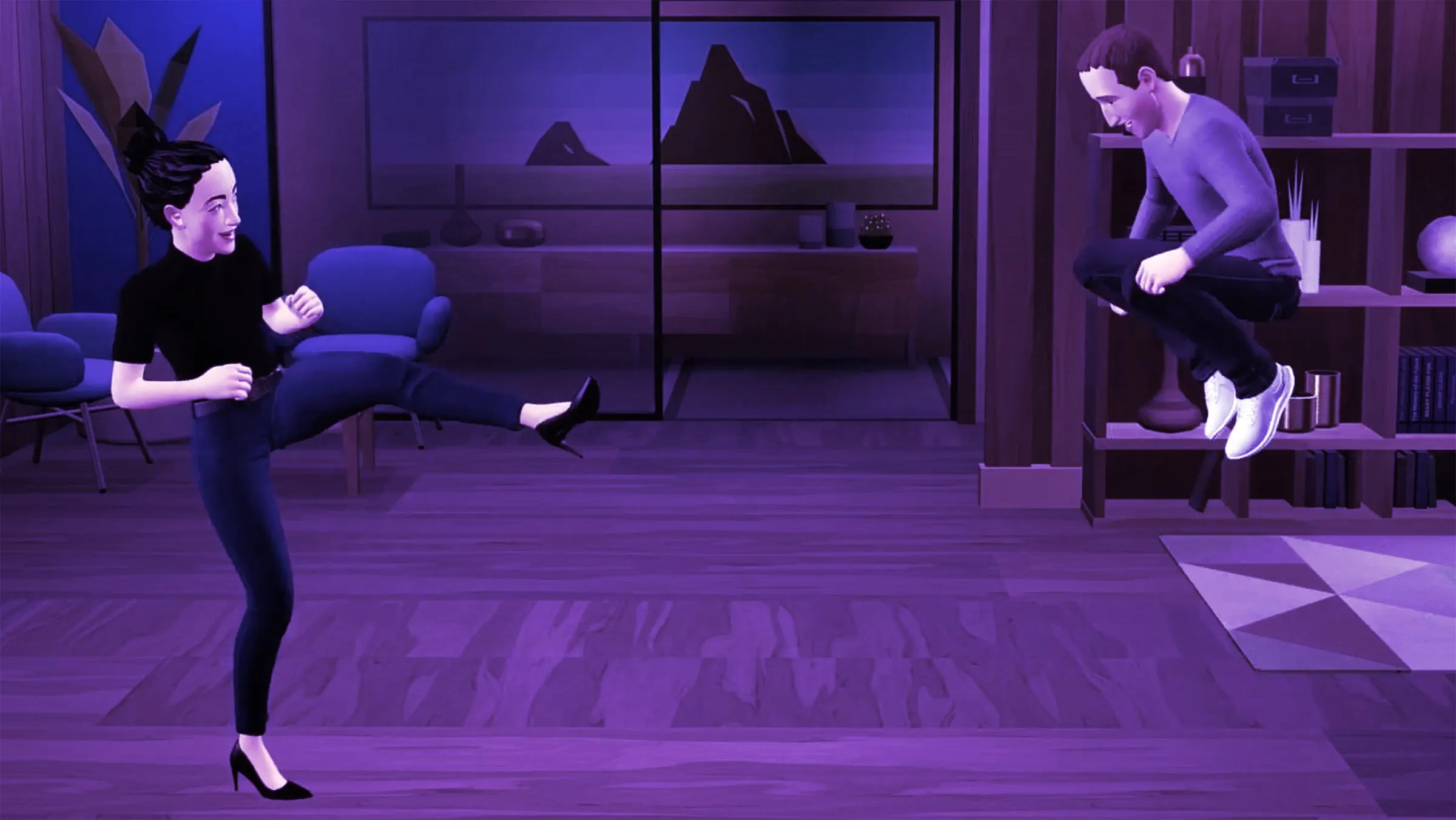It's fair to say that nobody is more excited about Meta's future metaverse than billionaire CEO, co-founder and chairman Mark Zuckerberg. Note his utter delight when, earlier this week, he announced "one more feature coming soon that's probably the most requested feature on our road map."
"Legs!" he said. "I think everyone has been waiting for this!"
Indeed, the addition of legs to Meta's metaverse was what made the most headlines this week—and not the upgraded haptic and tracking features or integrated web browser of the new Quest Pro mixed reality headset.
Zuckerberg explained that Meta will use an artificial intelligence model to predict and depict the positions of a user's whole body. But as delightful as the livestreamed reveal may have been, it appears the Horizon Worlds legs "demo" was more a "screen images simulated" moment.
According to Ian Hamilton, editor of Upload VR, a Meta spokesman told him that "to enable this preview of what’s to come, the segment featured animations created from motion capture."
Anything in a product demo deserves skepticism ("All demos lie!" reads one reply), but the apparent fabrication of a feature that has drawn a significant amount of industry commentary, snark, and competitive-trolling certainly doesn't help the rocky rollout of what is supposed to be Meta's signature product.
At least Zuckerberg's commentary about adding legs makes clear that doing so is a significant challenge—one that, in retrospect, he could have been saying Meta hasn't yet solved.
"Seriously, legs are hard, which is why other virtual reality systems don't have them either," he said, while his avatar shuffled and danced on screen.
"The perceptual science behind this is actually quite interesting," he opined. "We discovered early on that your brain is a lot more willing to accept a rendering of a part of you as long as it's accurately positioned, but if it's rendered in the wrong place it just feels terrible—it breaks the whole feeling of presence and immersion."
That's why, Zuckerberg explained, early VR iterations depicted the positions of VR controllers, rather than guessing the positions of the hands and arms holding them. But for Horizon Worlds, and most VR technologies, there are no controllers or sensors for users' feet and legs.
"Understanding your leg position is surprisingly difficult because of occlusion—if your legs are under a desk or your arms block your view of them, your headset can't see them directly," he said. "You need to build an AI model to predict your whole body position."
As a result, the first full-body avatars will come to Horizon Worlds first, then to Meta's other products.
Some people have suggested the lack of legs is a feature, not a bug, as there is a notable increase in the amount of potential mayhem and abuse that can be simulated once the human form extends below the belt. Sadly, Meta's Horizon Worlds has already seen its first sexual assault report.
But this latest revelation of a "preview" that enlisted trusty motion capture rather than VR doesn't help Meta's metaverse PR problem.
In October 2021, Facebook—arguably one of the biggest names in technology—bet the whole $10 billion farm on the metaverse. The company changed its name to Meta, and has since been aligning its sprawling enterprise to support Zuckerberg's vision of a virtual social universe.
Stockholders have not been impressed, however. And when Zuckerberg unveiled his cartoonish Horizon Worlds avatar in August, the instant reaction from the tech press and the public was outright mockery. While virtual worlds are not known for exceptional graphics, the debut of Meta's visual style went so poorly, Zuckerberg rushed out updated images with more sophisticated rendering.
Just last week, Meta put Horizon Worlds development on "quality lockdown," hoping to clean up bugs and other performance issues. Internal emails suggested that even Meta employees were not using their own product. And it remains an open question as to whether Meta's metaverse will play nicely with other metaverses or Web3 tech.
Given Zuckerberg's singular vision and zeal, Horizon Worlds will surely be only the first iteration of Meta's future. It remains to be seen whether anyone will want to be a part of it.
Daily Debrief Newsletter
Start every day with the top news stories right now, plus original features, a podcast, videos and more.

